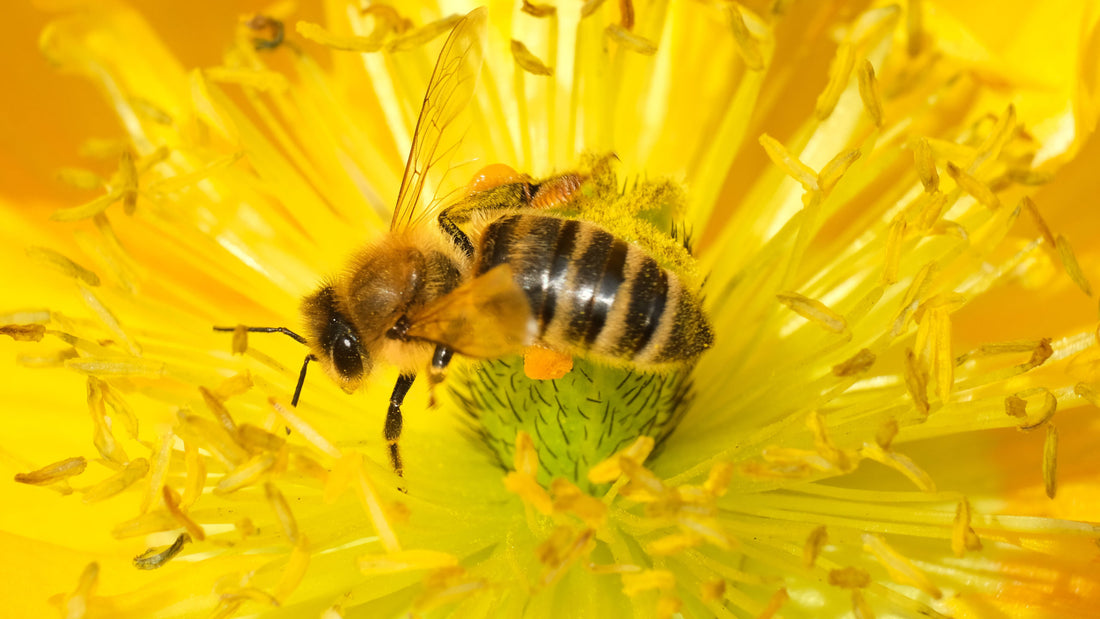In the intricate web of life, few creatures have a more profound impact on our ecosystem than bees. These small but mighty insects play a pivotal role in maintaining the delicate balance of nature. As we reflect upon their significance on this World Bee Day, let's delve deeper into why bees are so crucial to the well-being of our planet.
Pollination Powerhouses:
Bees are nature's remarkable pollinators. As they forage for nectar, they inadvertently transfer pollen from the male parts of a flower to the female parts, enabling fertilization and subsequent seed and fruit production. This pollination process is vital for the reproduction of approximately 85% of flowering plants, including many food crops. Without bees, the diversity and abundance of plant life would significantly decline, impacting entire ecosystems.
Biodiversity Guardians:
Bees are champions of biodiversity. Their foraging activities extend beyond cultivated crops, encompassing wildflowers, trees, and shrubs. By visiting diverse plant species, bees facilitate cross-pollination, promoting genetic diversity within plant populations. This, in turn, strengthens the resilience of plant communities, making them more adaptable to environmental changes. The diversity of nectar sources utilized by bees contributes to the unique flavors and characteristics found in different types of honey, including the delightful cream honey.

Food Chain Stabilizers:
Bees occupy a crucial position in the food chain, exerting far-reaching effects. As they gather nectar and produce honey, bees inadvertently transfer pollen, which sustains not only plants but also countless species of insects, birds, and mammals that rely on these plants for food and habitat. The availability of honey, including the creamy variant, is not only a testament to bees' vital role in pollination but also an indication of the abundance of plant life that supports a thriving food chain.
Ecosystem Services:
Bees provide invaluable ecosystem services that extend beyond pollination. Through their diligent efforts, they enhance soil fertility and structure by facilitating the breakdown of organic matter. Their activities also contribute to the dispersion of seeds, aiding the growth and regeneration of plant communities. The presence of bees in an ecosystem is an indicator of its health and vitality, reflecting the intricate interdependencies that sustain life on Earth.

Sustainable Agriculture and Food Security:
Bees are the unsung heroes of agriculture, ensuring food security for billions of people. An estimated 75% of the world's major food crops depend, at least in part, on pollinators such as bees. From fruits and vegetables to nuts and oilseeds, these essential pollinators enable the production of diverse and nutritious food. Supporting sustainable practices that prioritize the well-being of bees contributes to a stable food supply and the availability of high-quality honey, including the beloved cream honey.
The importance of bees in our ecosystem cannot be overstated. As guardians of pollination, biodiversity, and food security, these industrious insects are instrumental in maintaining the delicate balance of nature. On this World Bee Day, let us appreciate the vital role that bees play and recognize the urgent need to protect and conserve them. By embracing sustainable practices, promoting biodiversity, and creating bee-friendly habitats, we can secure a thriving future for both bees and our planet. Together, let us ensure that the symphony of buzzing wings continues to resonate in our ecosystems for generations to come, enriching our lives with the remarkable gifts that bees bestow, including the diverse and delectable honey they produce, such as the beloved cream honey.

